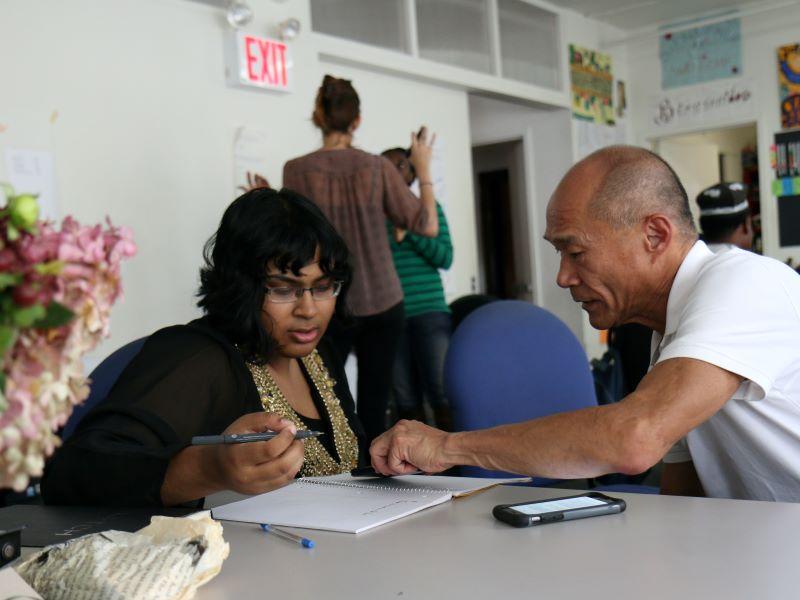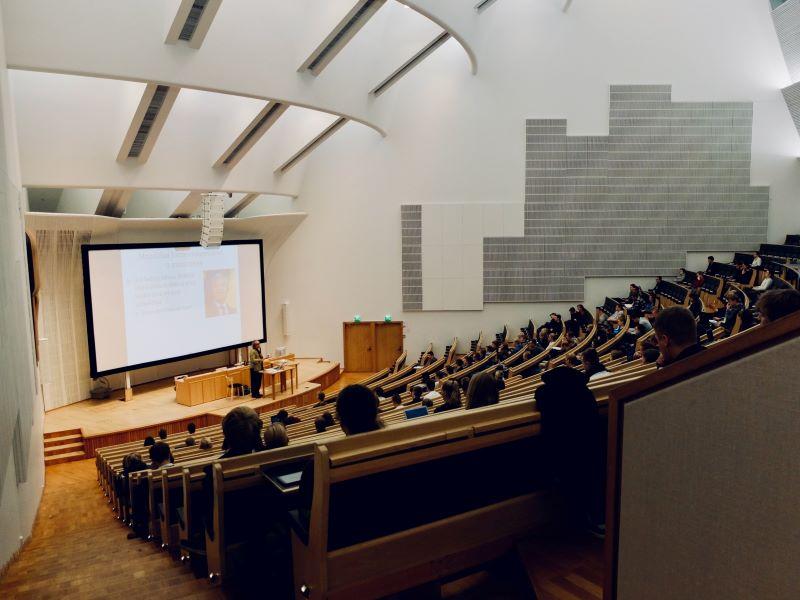
Developing flexible lifelong learning in line with changing needs and opportunities
Jonathan Michie shares insight to help institutions develop lifelong learning strategies that meet the need for flexible and relevant educational programmes

Global macroeconomic, technological and social developments are driving an increased need for flexible learning. Machine learning, artificial intelligence and robotics; the changing world of work; longer lives and more physically and mentally active pensioners; marginalised communities and the rise of populism; and the disruption of the global financial crises, the climate emergency and pandemics are combining to make lifelong learning essential.
Fortunately, with the growing need for flexible learning have come enhanced opportunities to meet these needs. Universities could and should be at the centre of these developments – but will only be if they change their ways. Otherwise, they will be bypassed – and over the long term, society and the economy will be the poorer for it.
How could and should universities respond?
Universities need to do three things.
First, a university-wide strategy for lifelong learning needs to be developed, approved and implemented. This needs to be rolled out across the whole institution, not parcelled off as “access” activities, or left to the business school or continuing education department. It needs to cover the full range of subject offerings, not be confined to “professional” or “vocational” areas; and it needs to include postgraduate and research degrees as well as undergraduate levels. Above all, university leaders need to signal that this is a priority, with active support from the vice chancellor and with the strategy implementation led by a pro vice-chancellor or equivalent.
Second, one size will not fit all. In developing its strategy for lifelong learning, each university needs to reflect on:
- its historic and current relations with its locality and region;
- its role nationally and internationally;
- whether it is an “all purpose” university or a specialist institution;
- who its key stakeholders are in terms of students and alumni, the professions, and other organisations.
These factors need to frame the strategy, which should be shaped accordingly.
Third, enhance in-person teaching with digital tools where appropriate. The pandemic drove teaching and learning online and broadened the appreciation of what is possible with the support of technology. This should be retained and developed as far as is appropriate but no further. Face-to-face teaching and learning remains crucially important for many aspects of learning. In some cases such as lab work this is obvious, in others such as debating and developing critical thinking it may be less obvious but still important. Engaging with the world of work is also a relevant consideration for face-to-face interaction.
A university lifelong learning strategy
Politicians generally recognise a need for learning to be lifelong. But they often have a surprisingly myopic focus on “skills” for “jobs” rather than learning for life. Surprising, as their electors are members of society as well as actual or potential workers – and have interests which may include but usually go beyond their paid work.
This has four implications for a university lifelong learning strategy in terms of :
- the nature of the activities;
- the subjects taught and interdisciplinarity;
- the link between teaching, research and knowledge exchange;
- the approach to innovation and entrepreneurship.
The nature of the activities
When designing lifelong learning programmes, some universities focus on the needs of their local communities, while others look to the world of work. The Universities Association for Lifelong Learning brings together universities with a range of approaches to adult and continuing education. Along with its Work and Learning Network, it is a rich source of advice.
People will and should want to learn for reasons beyond doing their job. It is useful, for example, for electors to have the capacity to think critically, weigh up evidence, and differentiate between genuine political arguments on the one hand and demagoguery on the other.
But even focusing on the workplace, unknown technologies and industries are approaching over the horizon, which means that simply teaching today’s skills is inadequate. The workforce needs the capabilities to adapt and engage successfully with as yet unseen technologies.
The most important “skill” to be imparted by lifelong learning is the ability to learn. This can be fostered by problem-based and experiential learning, with real-world applications, along with encouragement to question, discuss and debate ideas from across the disciplines.
The subjects taught
There is a need to go beyond science, technology, engineering and mathematics (STEM). Indeed, when faced with what might be envisaged as a clearly “STEM” challenge, namely breaking cyphers at Bletchley Park, recruits were drawn from the humanities as well as the sciences.
Many of the world’s major challenges require interdisciplinary work. Having team members with an appreciation of other disciplines can foster and enhance such work. Just as research and development creates "absorptive capacity" enabling firms to recognise and capitalise on the value of research by others, so individuals will bring more to interdisciplinary projects if they have an appreciation of the different disciplines. This is crucial to the teaching of research skills and research methods.
Teaching, research and knowledge exchange
A simplistic view of teaching skills for jobs risks downplaying the importance of knowledge transfer and research, focusing on taught courses rather than research degrees. One of the University of Oxford’s first part-time degree programmes was a master’s in software engineering, which included a dissertation. IBM sent employees on the course, and many of these dissertations were based on research in the workplace. Over time, this collaboration led to a research agreement between IBM and the university.
Innovation and entrepreneurship
University lifelong learning strategies should take novel approaches to capture the needs referred to above, and to impart a spirit of innovation. This should be conceived broadly, to encapsulate imagination and creativity. Similarly, entrepreneurship should be interpreted broadly as an exploratory mindset, to include “intrapreneurship” within large organisations rather than focusing solely on establishing new enterprises or growing young ones and should include social enterprises, which have a mission to contribute to society.
Jonathan Michie is professor of innovation and knowledge exchange and president of Kellogg College at the University of Oxford. He is also chair of the Universities Association for Lifelong Learning.


